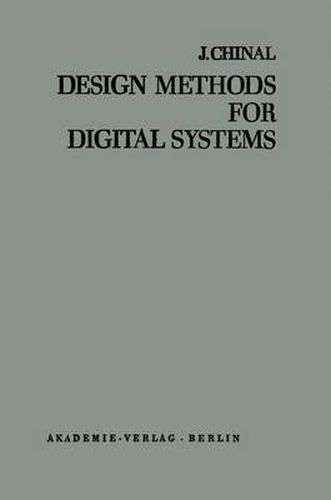Readings Newsletter
Become a Readings Member to make your shopping experience even easier.
Sign in or sign up for free!
You’re not far away from qualifying for FREE standard shipping within Australia
You’ve qualified for FREE standard shipping within Australia
The cart is loading…






This title is printed to order. This book may have been self-published. If so, we cannot guarantee the quality of the content. In the main most books will have gone through the editing process however some may not. We therefore suggest that you be aware of this before ordering this book. If in doubt check either the author or publisher’s details as we are unable to accept any returns unless they are faulty. Please contact us if you have any questions.
This book constitutes an introduction to the theory of binary switch ing networks (binary logic circuits) such as are encountered in industrial automatic systems, in communications networks and, more particularly, in digital computers. These logic circuits, with or without memory, (sequential circuits, combinational circuits) play an increasing part in many sectors of in dustry. They are, naturally, to be found in digital computers where, by means of an assembly (often complex) of elerpentary circuits, the func tions of computation and decision which are basic to the treatment of information, are performed. In their turn these computers form the heart of an increasing number of digital systems to which they are coupled by interface units which, themselves, fulfil complex functions of information processing. Thus the digital techniques penetrate ever more deeply into industrial and scientific activities in the form of systems with varying degrees of specialization, from the wired-in device with fixed structure to those systems centered on a general-purpose programmable com puter. In addition, the present possibility of mass producing microminiaturi sed logic circuits (integrated circuits, etc. ) gives a foretaste of the intro duction of these techniques into the more familiar aspects of everyday life. The present work is devoted to an exposition of the algebraic techni ques nesessary for the study and synthesis of such logic networks. No previous knowledge of this field of activity is necessary: any technician or engineer possessing an elementary knowledge of mathematics and electronics can undertake its reading.
$9.00 standard shipping within Australia
FREE standard shipping within Australia for orders over $100.00
Express & International shipping calculated at checkout
This title is printed to order. This book may have been self-published. If so, we cannot guarantee the quality of the content. In the main most books will have gone through the editing process however some may not. We therefore suggest that you be aware of this before ordering this book. If in doubt check either the author or publisher’s details as we are unable to accept any returns unless they are faulty. Please contact us if you have any questions.
This book constitutes an introduction to the theory of binary switch ing networks (binary logic circuits) such as are encountered in industrial automatic systems, in communications networks and, more particularly, in digital computers. These logic circuits, with or without memory, (sequential circuits, combinational circuits) play an increasing part in many sectors of in dustry. They are, naturally, to be found in digital computers where, by means of an assembly (often complex) of elerpentary circuits, the func tions of computation and decision which are basic to the treatment of information, are performed. In their turn these computers form the heart of an increasing number of digital systems to which they are coupled by interface units which, themselves, fulfil complex functions of information processing. Thus the digital techniques penetrate ever more deeply into industrial and scientific activities in the form of systems with varying degrees of specialization, from the wired-in device with fixed structure to those systems centered on a general-purpose programmable com puter. In addition, the present possibility of mass producing microminiaturi sed logic circuits (integrated circuits, etc. ) gives a foretaste of the intro duction of these techniques into the more familiar aspects of everyday life. The present work is devoted to an exposition of the algebraic techni ques nesessary for the study and synthesis of such logic networks. No previous knowledge of this field of activity is necessary: any technician or engineer possessing an elementary knowledge of mathematics and electronics can undertake its reading.